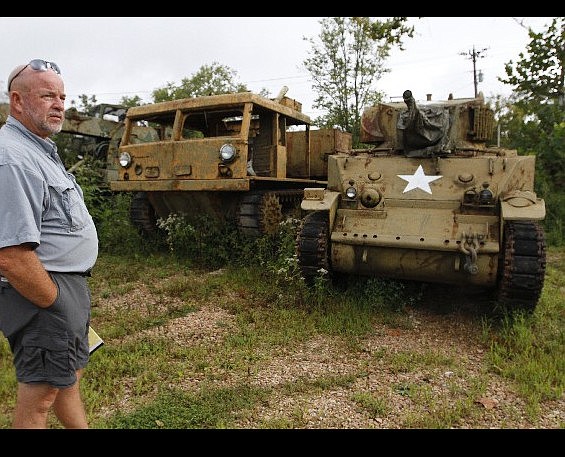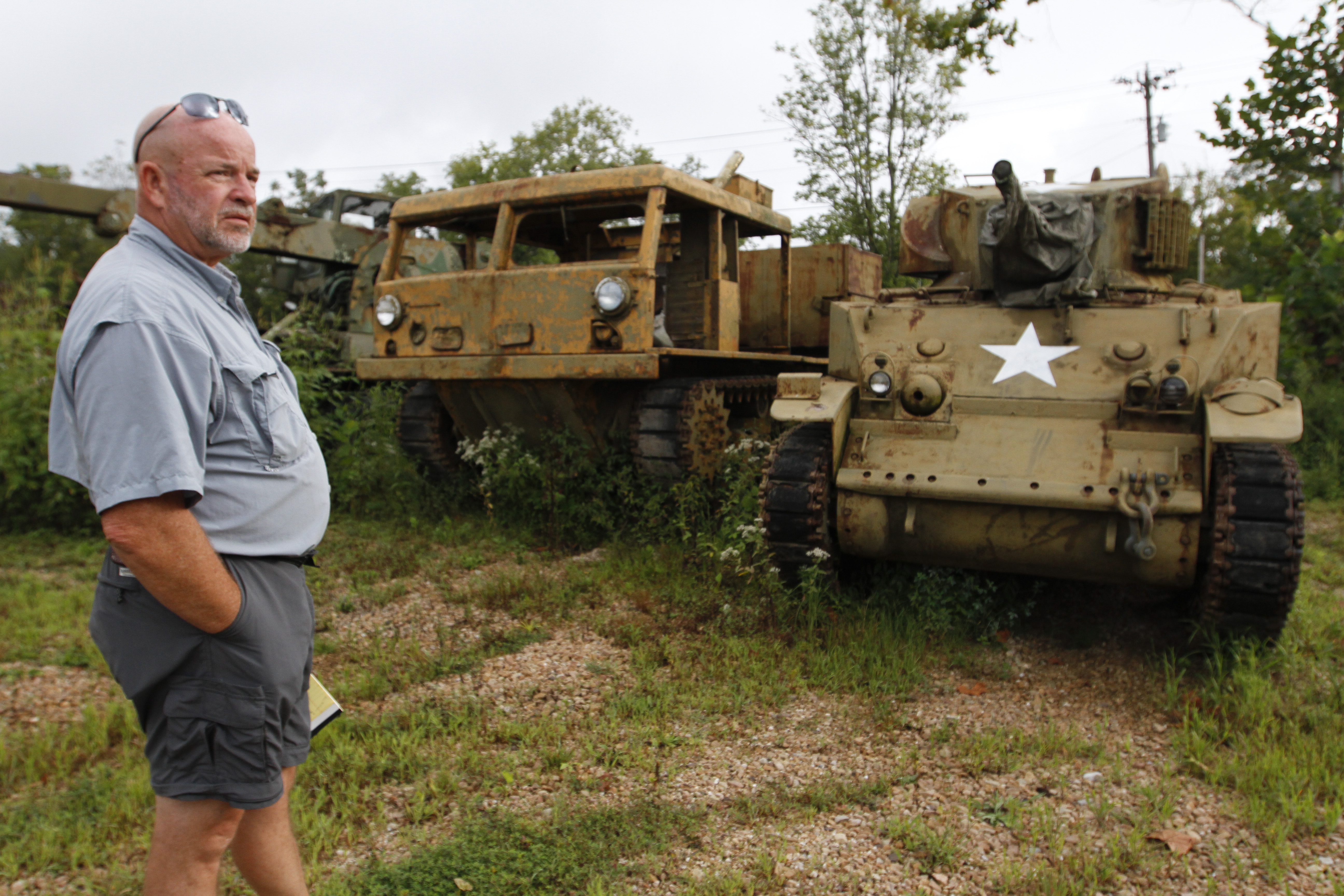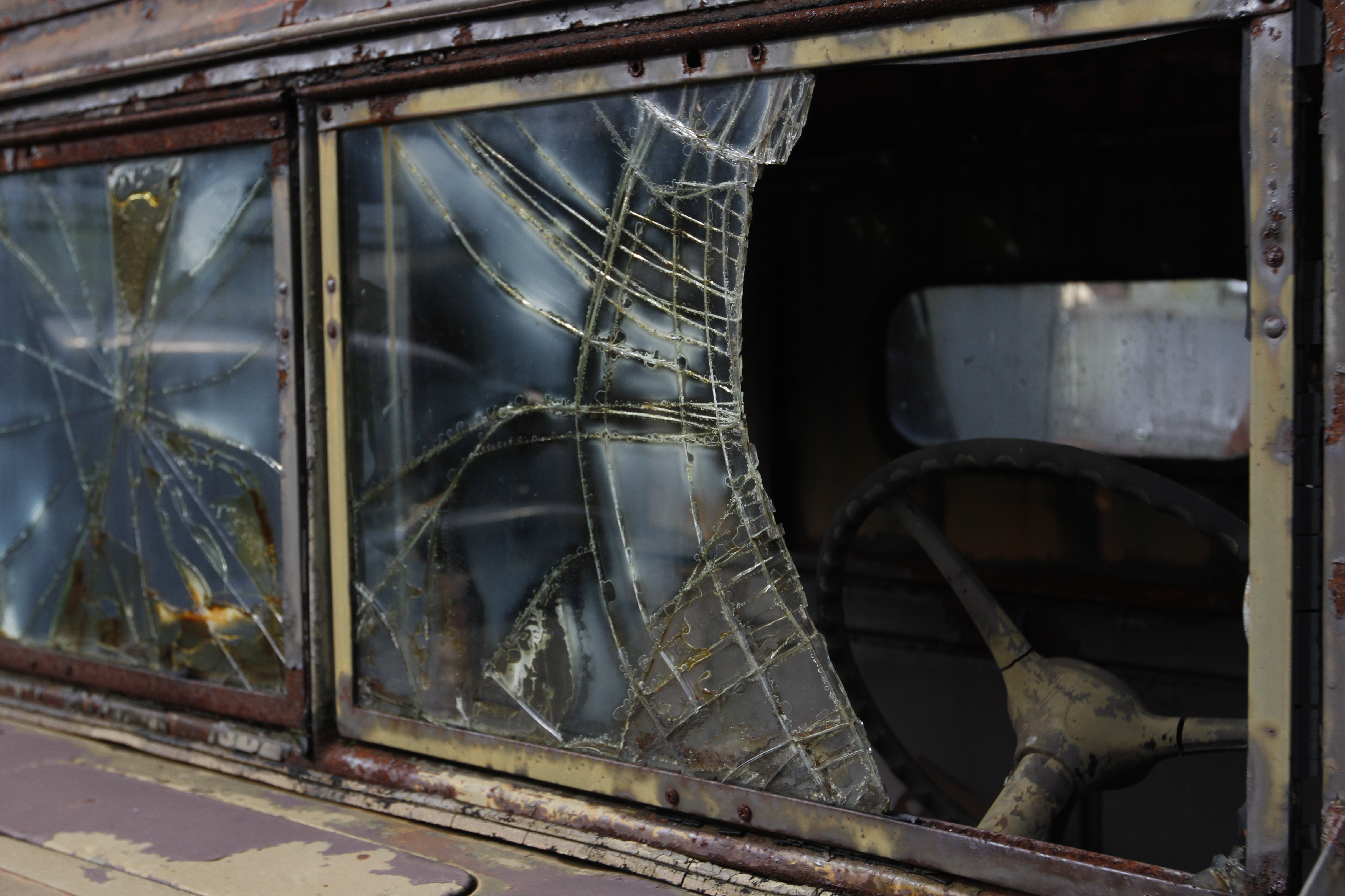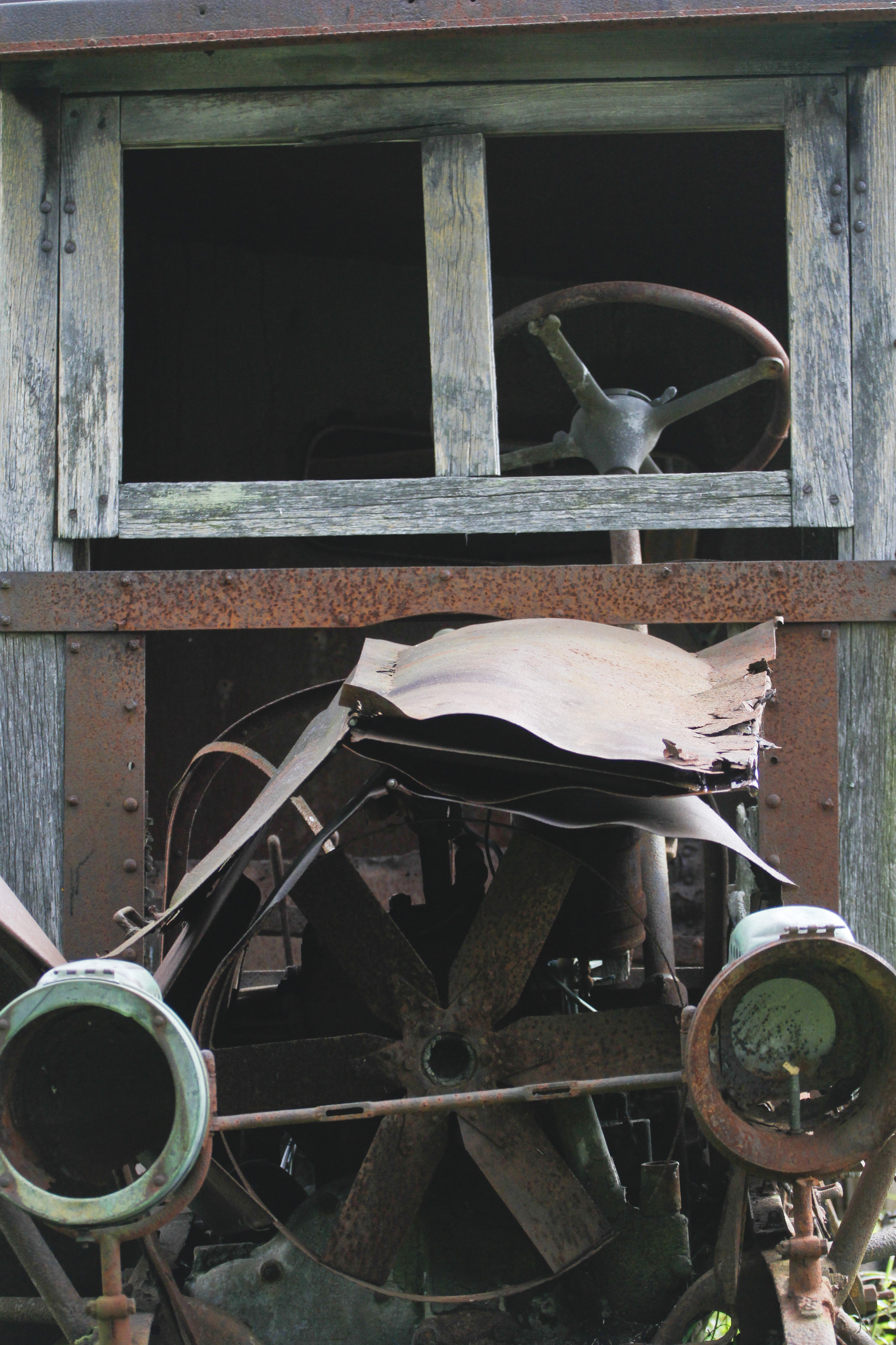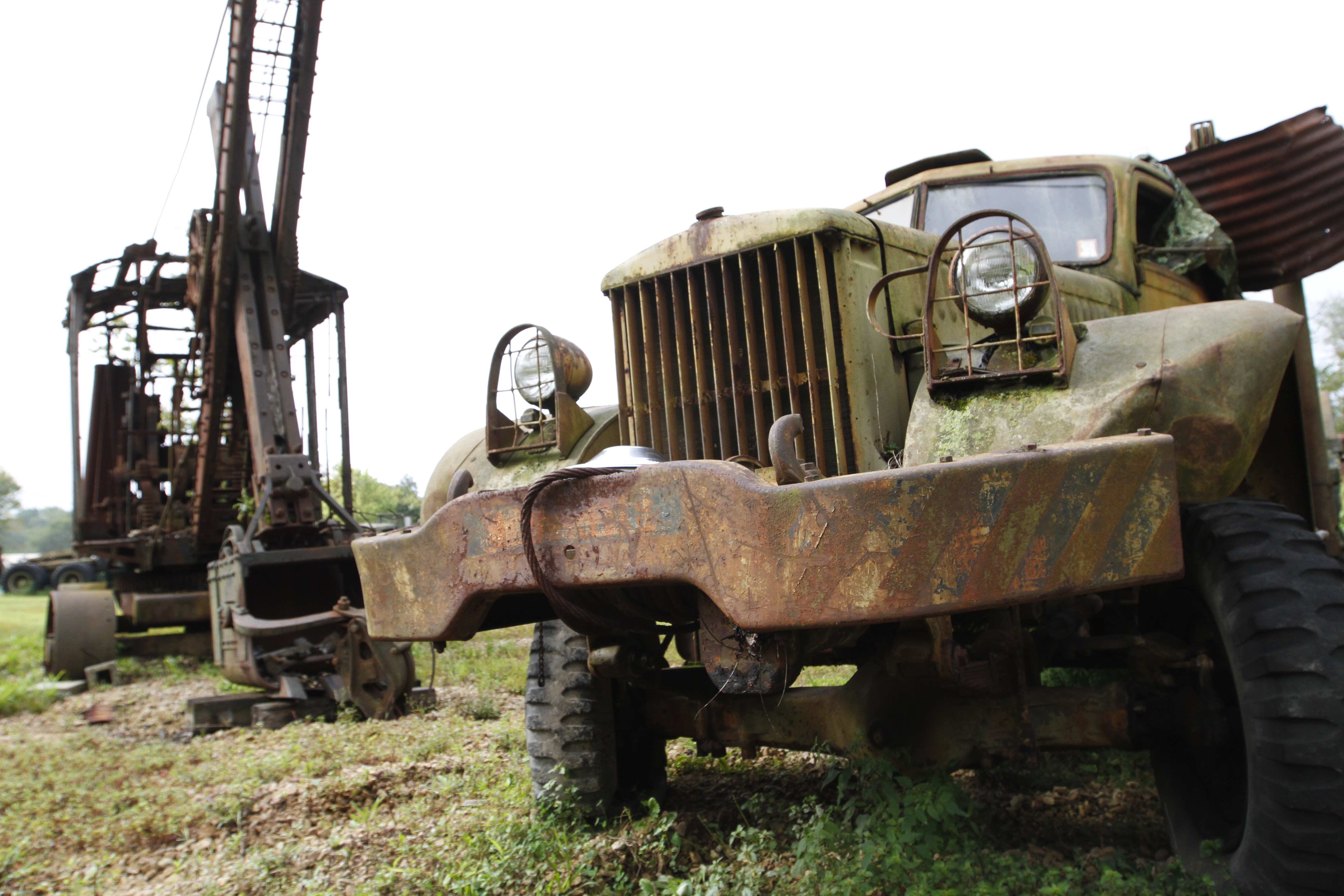TRACY CITY, Tenn. - As motorists enter Tracy City from Monteagle in Grundy County, a time warp lies just to their right.
It's in a field filled with rusty tanks, Army jeeps, bomb trucks, steam shovels, coal trucks, personnel carriers, even a 90-mm World War II-era cannon, all standing oddly preserved right where Sam "Bud" Werner left them when he died in 2011.
Werner knew a thing or two about coal mining, lumber milling and military equipment, and had a special fascination with the military stuff he collected by the ton, according to Ron Alred, a longtime Werner family friend, military vehicle consultant and the executor of Werner's estate.
Werner was the descendent of a line of Werners who helped make Tracy City and Grundy County a lumber and coal industry leader in the New South in the wake of the Civil War. Those operations continued well into the 20th century, shaping the town and over the years employing hundreds of people.
As executor, Alred is charged with digging out the old equipment and vehicles and getting the suitable ones ready for display in a future museum. Alred, 64, suspects the museum might end up being one of his life's works.
Alred has been working with Werner's closest living relative, second cousin Ellen Boyd Stamler, who lives in Ohio with her daughter. Stamler owns the locally famous Shook House, a beautiful Victorian home in Tracy City.
There's also talk of a short rail line for one or two of the three locomotive engines Werner kept, but that will come later.
Around the turn of the last century, the Werners had constructed a 10-mile-long rail system throughout Tracy City they dubbed the "Dinky Train," used to haul lumber from the family's lumber mill, the Sam Werner Lumber Company. A second line they built between Tracy City and nearby Big Hill serviced the coal mines operating there. The Werners were closely associated with the operation that would become the Tennessee Consolidated Coal Company.
Plans are to open a museum in Tracy City in an existing structure or in something built on the Werner property where the rusty collection of history sits now, said Alred, who first knew the Werners through his father around 1959.
"When I first came up here around the spring of 1959, there were more jeeps than a little boy could count," he said, stalking through the grass between a pair of early 20th-century steam shovels and some neat-looking, 1950s-era mail trucks hardly bigger than a golf cart.
The Werners -- Bud and his father Sam -- after World War II started collecting surplus military vehicles, many of them rare, some prototypes and one-of-a-kind military rarities. Alred said the Werners already had a collection of unusual industrial vehicles that came from the lumber mill and coal-mining operations, many dating to the early 1900s.
"He and his dad would travel all over pulling a little trailer and buy surplus parts and vehicles," Alred said with a smile and a shake of his head. They pulled the trailer with a Lincoln or Cadillac, he said.
"What he kind of specialized in during his later years was a little vehicle called a 'Mighty Mite.' It was a Marine Corps air-dropped vehicle made of aluminum; he had about 600 of those at one time. We have 78 residues (incomplete examples) here now," he said. There also are literally tons of parts, frames, hoods and other body parts for them stored all over over the property in dozens of semi-trailers, sheds and barns.
Alred said 32 of Werner's pieces have been returned to Tracy City from Ohio where they were on display in a private museum.
Tracy City Mayor Larry Phipps said the Werner family "is the town, more or less," and that a museum would be an exciting addition to the town.
"The family name is synonymous with the town because they were here when it started. I understand that they're making plans for a museum here in town for a lot of his relics and some that he had donated to a museum up north," Phipps said.
Werner didn't collect things to make a profit.
"He had no intentions of selling it. He just bought it to have. He wouldn't even talk to you about selling it," Phipps said, laughing.
Oliver Jervis, president of the Grundy County Historical Society, said the Werners came to Grundy County from Switzerland, like many of Grundy's residents. The Werners and the Greeter family were the big players in the local booming lumber industry.
In Tracy City, the Werners' mill not only powered the lumber operation, its whistle sounded the workday hours at 7 a.m., noon, 1 and 5 p.m., and the mill also powered Tracy City's water system. The mill's electric generators provided residents with electricity for $1 a month.
The lumber mill ceased operation in the 1940s when President Franklin D. Roosevelt was re-elected to another term.
"He said if Roosevelt was elected to his third term, he would close the mill. He (Roosevelt) did win and he (Werner) did close the mill," Jervis said.
With the closure, the Werners' three narrow-gauge locomotives -- two steam engines and a small gas-powered engine -- were backed into a barn on their smallish rails and left there to sit.
Today, those locomotives still sit in the barn where they were parked, their rails leading out just past the wooden doors where they vanish under the grass.
Alred said the Cincinnati gas-powered engine, produced around 1930, can probably be restored to running trim fairly easily while the two Vulcan steam engines, both from around 1912, are bigger restoration projects or possibly a single project in combining the best of their parts.
The vast collection is the legacy of a man whose passions ran widely. He never married and never had any children. In later years, Werner had a yard full of dogs that he loved like sons and daughters, according to Alred.
On Thursday, an old mongrel trooped along behind Alred as he talked about the collection and cracked open the doors on the trailers and sheds and walked past the little trailer the Werners used to bring their collection home.
"I'm keeping that because of all the stories that go with it," he said of the little trailer now filled with Alred's memories. "Bud was a unique man."
Contact staff writer Ben Benton at bbenton@timesfreepress.com or twitter.com/BenBenton or www.facebook.com/ben.benton1 or 423-757-6569.
